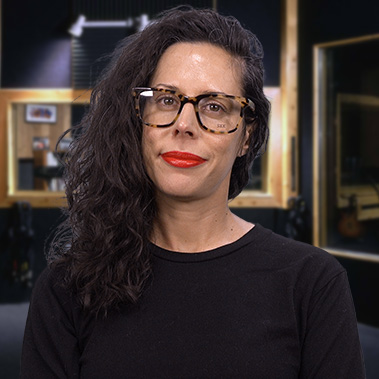Ever get into a friend’s car and immediately plug their aux cord into your phone? Are your playlists always in demand? Chances are you’ve considered a music career even if you don’t see yourself center stage. Being a performer is just one of many music jobs, and with the job market growing, getting started in the music industry can feel like a daunting process. So many people are working behind the scenes in different roles to get your favorite artists into a recording studio or on stage to perform the songs you love. Here are a few of the jobs and music careers that can combine your superior taste and love of music.
So many people are working behind the scenes in different roles to get your favorite artists into a recording studio or on stage to perform the songs you love.
A&R Scout
Artist & Repertoire is an entire department at a record label typically comprised of coordinators, managers, and directors. The A&R scout also is usually an entry-level or junior position. A&R scouts find new talent by listening to music demos, live performances, and showcases and tracking trends on social media and blogs.

It Helps If You…:
Are a night owl. New, unsigned artists tend to get unglamorous bookings, so gigs may start late at night.
Booking Agent
A booking agent arranges for artists to perform live. An agent may work for an agency or independently to represent a specific artist or multiple acts. Agents act as salespeople to convince venues to book their music artists. They also handle contract negotiations to ensure their artists have compensated appropriately and that their needs are met backstage before and after their performance — typically provided as a list called a rider.

It Helps If You…:
Are a people person. Moreover, agents have to interact with a variety of personalities, from venue employees to artist managers and publicists.
Music Journalist
Journalists write about music for publications. The types of writing can range from new music and concert reviews, interviews, artist profiles, industry news, and much more. Journalists also analyze music without bias and write their opinions in an enjoyable way to read.

It Helps If You…:
Are good at networking. If you’re starting as a freelancer, you will have to reach out to editors to pitch your work. If you’re more established, you should have relationships with music publicists to access a pre-release and receive shows invitations.
Music Producer
The music producer is like the quarterback of a studio session. They are the point person connecting the artist, songwriters, session musicians, engineers, and other studio personnel. In addition, producers often compose the song being recorded, creating its sound and structure and guiding the artist’s recording performance. To determine a song’s marketability, producers have to understand all aspects of music — from creative to technical to commercial.

It Helps If You…:
Have some knowledge of music theory. Whether it’s reading music or playing an instrument, it’s helpful to grasp the components that make up a piece of music.
Music Supervisor
A music supervisor is responsible for selecting pre-existing music to pair with visual media such as advertising, film, television, and video games. Music supervisors tap into a scene or project’s emotional core to pick the perfect song to accentuate the moment. They negotiate licensing rights with music publishers and songwriters to legally use the music they choose.

It Helps If You…:
Can handle a budget. The cost of licensing a song varies depending on the song’s popularity. As a result, music supervisors have a fraction of the overall budget to secure music for the entire project.
If you’re ready to start working in the music industry and see which music career may be the right fit for you, check out Yellowbrick’s Ultimate Music Career Guide.




